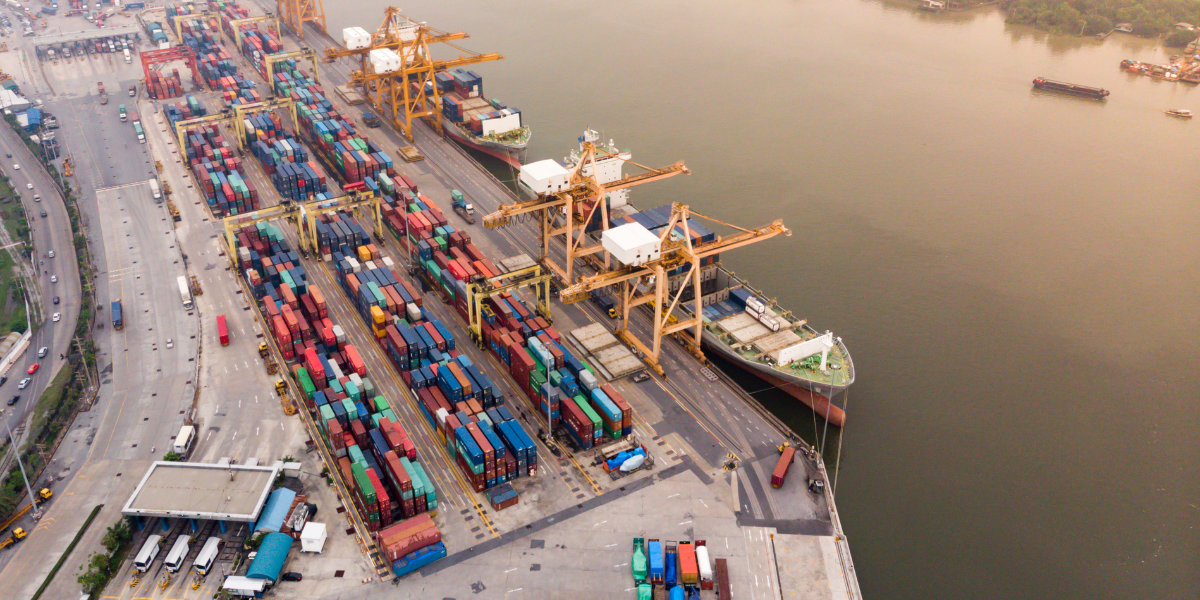
International Freight Shipping 101: What You Need to Know
International freight shipping opens doors for businesses worldwide. From optimizing routes to choosing the right transport mode, DAL is here to guide you through the journey of seamless, cost-effective shipping.
What is International Freight Shipping?
International freight shipping refers to the transportation of goods across borders from one country to another.
It involves the movement of cargo by various modes of transportation, such as trucks, trains, planes, or ships — depending on the nature of the goods, distance, and specific requirements. The process includes careful coordination of project freight logistics, documentation, customs clearance, and compliance with international regulations.
Modes of Transportation for International Freight Shipping
When shipping internationally, your products have a few transportation options: trucks, trains, planes, and ships. Each has its strengths, and the right choice depends on factors like the nature of your goods, budget considerations, and delivery timelines.
Air Freight
- Fast and suitable for time-sensitive shipments.
- Generally more expensive, especially for large volumes.
Ocean Freight
- Cost-effective for large volumes, suitable for various cargo types.
- Longer transit times but ideal for non-urgent shipments.
Trucking
- Flexible, door-to-door service, suitable for smaller shipments.
- Dependent on road conditions and may involve customs clearance.
Rail Transportation
- Efficient for long distances, cost-effective for bulk cargo.
- May require additional trucking for door-to-door service.
Intermodal transportation is also a strategic solution that seamlessly combines different modes like trucking, rail, and ocean or air freight. This approach offers businesses flexibility and efficiency, optimizing cost-effectiveness and transit times.

Less-Than vs. Full Container Load
LCL (Less than Container Load) refers to shipments that do not fill an entire standard shipping container. LCL is ideal for smaller shipments, where multiple consignments from different shippers are consolidated in a single container.
FCL (Full Container Load) signifies a shipment that completely occupies a standard shipping container. FCL is suited for larger volumes of goods from a single shipper, ensuring exclusive use of the container.
Less-Than vs Full Truckload Shipping
LTL (Less than Truckload) refers to shipments that do not require the full capacity of a standard truck. LTL is efficient for smaller loads, where space in the truck is shared with cargo from multiple shippers.
FTL (Full Truckload) represents shipments that fill an entire standard truck. FTL is ideal for larger volumes of goods from a single shipper, optimizing the use of the entire truck capacity.
How a Third-Party Logistics Company Can Help Lower International Freight Shipping Costs
A Third-Party Logistics (3PL) company can be a game-changer for business owners engaging in international freight shipping. Here’s how they can help:
Carrier Negotiation & Rate Optimization
3PLs have established relationships with carriers and can negotiate favorable rates on behalf of businesses. This helps in optimizing costs and ensuring competitive pricing for international shipments.
Supply Chain Optimization
3PLs analyze and optimize supply chain processes, identifying areas for improvement and cost savings. This contributes to the overall efficiency of international shipping operations.
Customs Compliance
Ensuring compliance with international customs regulations is a critical aspect of global shipping. 3PLs have the expertise to handle customs documentation, reducing the risk of delays and ensuring a smooth passage through borders.
Consolidation Services
3PLs can consolidate smaller shipments into larger ones, maximizing container or truck capacity. This approach reduces costs per unit and enhances overall shipping efficiency.
Technology Integration
Many logistics companies utilize advanced logistics management software to provide real-time visibility into the shipping process. This technology allows businesses to track shipments, receive updates, and make informed decisions throughout the supply chain.
Risk Management
From insurance coverage to handling unexpected challenges, 3PLs assist in managing the various risks associated with international freight shipping, providing businesses with peace of mind.
Scalability
As businesses grow, 3PLs offer scalable solutions to accommodate increased shipping volumes. This flexibility allows companies to adapt to changing market demands without compromising logistics efficiency.
DAL Offers Personalized Logistics Solutions
Navigating the international freight shipping process requires expertise, and at DAL, we’re here to help you every step of the way. Our commitment to seamless logistics and personalized solutions ensures your products reach their global destinations efficiently and securely. As your trusted partner, we bring a comprehensive range of services, from negotiating the best transportation prices to providing real-time tracking updates.
Embark on your international shipping journey with confidence, knowing that DAL is by your side, simplifying the complexities and optimizing the efficiency of your shipments.
Contact DAL today to explore our global logistics services.